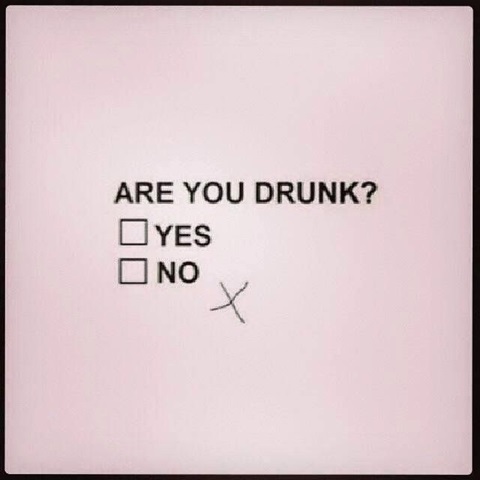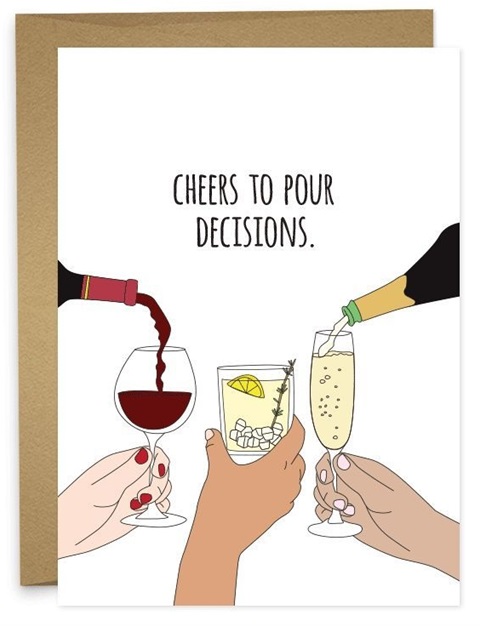CRINGING BINGEING!
The world seems a better place when you're wearing beer goggles. Or is it? 'A hangover is the sign of a good night? Or is it?
A fleeting Sunday morning hangover is hardly a deterrent while the glorious upsides are the promise of temporary anaesthesia whenever the moment takes.
But who are binge drinkers?
Are they those who slur their speech, either exaggerating every word or forgetting the next with a confused vacant look appearing? Those who have difficulty walking in a straight line, often falling about in the street, into bushes or found slumped in gutters, vomiting over their shoes? Those lurching unsteadily, holding onto each other for support as they wait for taxis only to be denied access for fear of being sick on leather interiors? Those who do embarrassing things in ‘the moment’ only to have uncomfortable moments the next day from flashbacks slowly piecing all the bits back together inevitably causing them to reach once again for a drink to forget!
What is binge drinking?
The term is used to describe drinking to get drunk. It usually consists of intensive drinking sessions to excess where large quantities are drunk in a relatively short space of time.
However, there is no definition of what is meant by the term or the amount of alcohol needed which will vary enormously from person to person and from occasion to occasion. As a guideline it is defined; “a pattern of drinking that brings a person’s BAC (blood alcohol concentration) to 0.08 grams percent or above.” This is approximately 5+ drinks in less than 2 hours for men, or 4+ drinks for women.
But surprisingly most people who binge drink are not actually alcohol dependent and they are not even necessarily problem drinkers.
So why do we have to binge until we either pass out or trigger a negative bodily reaction like throwing it all up again?
This is down to our brains releasing a feel-totally awesome chemical called dopamine when we drink alcohol. Once dopamine is secreted during a binge, it can become like a physical addiction— the more we binge the more we crave the rush of chemicals. Similarly, low levels of dopamine and seroyonin (another happy chemical) can lead to compulsive behaviour (like bingeing).
So is it acceptable to let off steam after a monotonous week by rewarding ourselves with a boozy weekend? Beyond the superficial bravado that booze can bring, does the excess make us really happy or are there more darker reasons for binge-drinking; peer pressure, lacking in confidence, boredom, burdensome responsibility and misery that make us do it?
It is fact that any type of bingeing are ways of dealing with negative emotions that are neither rational or healthy. There is a common determination to shake off the above by getting smashed. But whereas the occasional overindulgence can feel great when does it become a real problem and the regret sets in?
At the same time, binge drinking is the most common way alcohol is both enjoyed and abused in many parts of the world. Right back almost as far as we can trace, humans have produced alcohol. There’s archaeological evidence which shows that even in 10,000 BC the Neolithic humans used to ferment and drink beer. There is also evidence of wine production in China too, from around 7,000 BC. But, did binge drinking, or drinking to excess, occur then?
Binge Drinking Facts & Statistics
Men are twice as likely to binge drink as women.
Binge drinking greatly increases your changes of both short term and long-term health issues – some fatal; including injuries due to accidents while intoxicated (e.g. falling down, drowning, car crashes). Alcohol poisoning, asphyxiation from vomit (choking to death on vomit while passed out), STIs, accidental pregnancy, cardiovascular disease, liver disease, neurological disease, erectile Dysfunction, to name but a few!
Research has shown that drinking just six drinks in a sitting can result in damage to memory, especially for those under the age of 25, due to the vulnerability of the brain at this age. On the flip side, the longer someone has been a heavy drinker, the more likely it is that memory problems will occur. It’s not all bad news, though as our brains are do have the capacity to repair themselves. After a year of no alcohol some forms of damage may be reversible.
Frequent binge drinking can effect your ability to learn and concentrate, well after your hangover has disappeared.
Those who start binge drinking before the age of 14 are 4 times more likely to become alcoholics later in life.
Figures show alcohol misuse costs the nation £7.3 billion in crime and antisocial behaviour.
Every year 3.3 million people die worldwide from alcohol abuse which represents a whopping 5.9 percent of all deaths globally.

